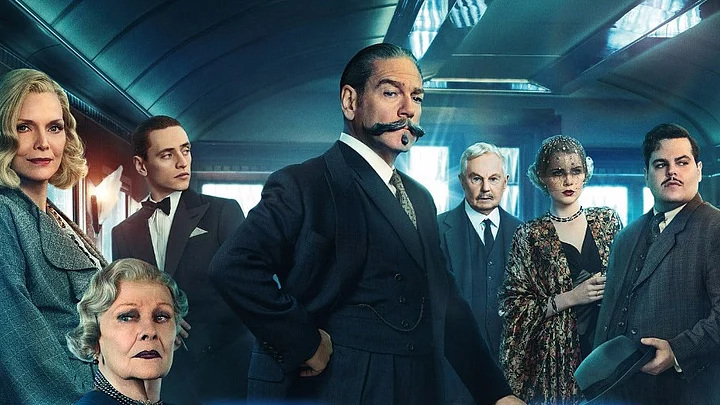How do you sell a picture that solely relies on the big reveal? When Sydney Lumet decided to adapt Agatha Christie’s famous mystery novel in 1974, he presented a cocktail of acting royalties from theatre and cinema. Considering the plot is almost a public knowledge, audience poured in to witness a dozen legends chewing scenes as murder suspects.
Kenneth Branagh adapting the same novel four decades later does the same trick and a little more. Like Lumet, he also brings in sparkling talents on board, and shows up himself as the sleuth Hercule Poirot. But his version is hardly a re-imagination. It brings scarcely anything new to the tale of a blocked train and murder.
Sherlock Holmes, another famous detective, was reinvented by Guy Ritchie in cinema by making him a quasi-action hero, and the BBC series saw the detective in the age of digital revolution, solving puzzles like a sociopath. Branagh, on the other hand, puts his mystery in the original decade of the book, much before World War II.
Branagh as an actor is no Albert Finney, whose Poirot was a hyperbole of acting, chipping in blocks of awkward wit, classic mannerisms, and an unflustered skill in putting clues together, or taking them apart to solve the case. His detective has OCD for same-sized eggs, and ties, but he forgets to bring humour in his luggage.
The film opens with the twirling shot of Wailing Wall in Jerusalem. The Belgian detective is asked to solve the theft of an antique in which a priest, a rabbi and an imam are suspects. Post this introductory newness, Poirot is on the Orient Express chugging along with a heady mix of American and European society members. But an avalanche of snow brings the train to a grinding halt. Of course, a life came to a full stop too. Now our detective must find the murderer.
Bearing in mind the limitations of a locked-room mystery, Branagh brings in his usual flourishes with swirling camera movements, probing close-ups, adding even a chase and a shooting scene. But he can’t escape the gaudy special effects aesthetic that robs the film off the charm, otherwise conveyed well by period costumes. The hugger-mugger remains the same, but Branagh and his screenwriter Michael Green (Logan, Blade Runner 2049) put a layer of racial sensitivity into the proceedings. After all, dame Christie was an A-list bigot peddling racism oh-so-casually in her bestselling mysteries. Still, a complacent crack on a ‘prostitute’ slips in the film.
Shall we say, men will be men?
If you’re aware of the big shocker through the book or the various adaptations, you’re in for a very unchallenging ride. Unlike the Lumet adaptation, many details of the murder and the investigation gets condensed taking away the charm of a perfect puzzle.
And the interrogation scenes are so partial that a heap of prime acting talents (Judi Dench, Willem Dafoe, Penélope Cruz, Olivia Colman, Derek Jacobi) becomes sad waste. The rest is a mild concoction, except only Michelle Pfeiffer who stirs up a storm, wavering in verve and despair in equal measure.
Branagh’s character at a pertinent point says, “I am probably the greatest detective in the world”. Directing himself, he allows his many headed moustache the maximum screen time, perhaps more than required. And instead of drollness, his Poirot attempts to rattle us with ‘the fracture of the human soul’. In trying to make his detective a heroic figure, he tries to even add existential angst to the dawdling mystery, flushing down the comic possibilities. What a pity.
In empty melancholia, the end hints at Poirot going to Egypt for another case. Oh dear! The curse of the franchise is upon us.
(The writer is a journalist, a screenwriter, and a content developer who believes in the insanity of words, in print or otherwise. He tweets @RanjibMazumder)
(At The Quint, we question everything. Play an active role in shaping our journalism by becoming a member today.)
